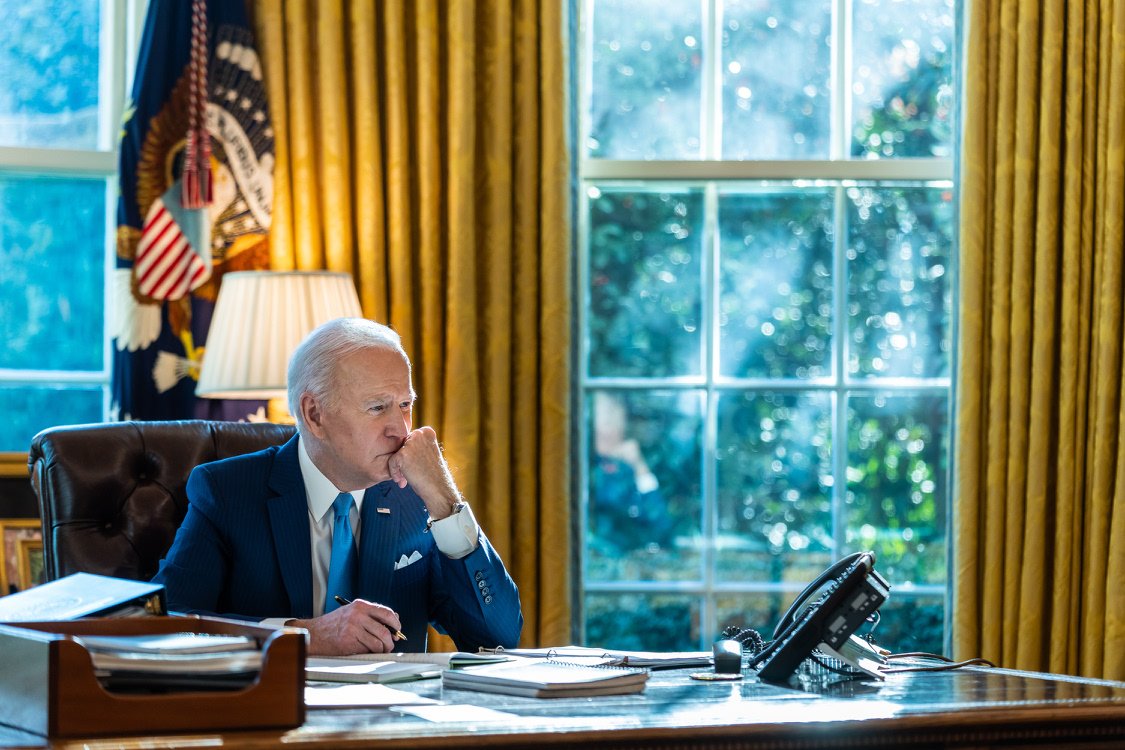What will Biden do against inflation?

Comment by Libby Cantrill, Head of US Public Policy at PIMCO, and Allison Boxer, US Economist at PIMCO, on the fight against inflation in the US, with a focus on the measures implemented by the White House and their potential effectiveness
With gasoline and food prices soaring, inflation is at the top of US voters' concerns; it is not surprising, in fact, that President Biden is doing everything possible – both substantially and rhetorically – to fight inflation. However, the reality is that outside of Congress – which has ultimate control over fiscal policy – and the Federal Reserve – which directs monetary policy and which President Biden points out is very independent – the White House has limited options in fighting the 'inflation.
Several efforts to fight inflation are underway or under consideration, including:
Unlocking Strategic Petroleum Reserve (SPR) Oil Reserves: The most important action taken so far has been the Biden administration's announcement, in late March, of the release of 180 million barrels from SPR, the national reserve of oil, over six months to help replace lost oil imports from Russia (estimated between 1 and 3 million barrels per day). However, as refineries in the United States are operating at near full capacity and the workforce, infrastructure and financial aspects continue to hamper the increase in refining capacity, the impact of the SPR release has been relatively limited and the fuel prices continued to rise after the announcement. Although the White House has decided to focus efforts on refining capacity, we expect the summer to see new records for US fuel prices.
Removal of tariffs: The White House is considering removing tariffs imposed on China by President Trump, which some estimates cover nearly two-thirds of goods imported from China. However, we believe the tariff elimination would be less significant than Washington advocated, with the US CPI likely to fall by around 0.3 percentage points if they were eliminated altogether. If that amount seemed significant when CPI was at 2%, it is now much less with core CPI above 6%. It's also possible that the impact is even smaller this time around, as companies have had several years to adjust supply chains to mitigate the effects of tariffs. Indeed, some substitution of imports from China to Europe appears to have occurred in the quarters since the initial implementation of the tariffs. In our view, not only would the impact on inflation be limited, but we could also see a political reaction from both Republicans and Democrats, as well as voters, who today have the most negative opinion on the Chinese government in recent history. .
Fighting Rising Food Prices: The Biden administration has focused on fighting food inflation by increasing domestic agricultural production and cracking down on oligopolistic industries which, it claims, abuse their power to determine prices, especially the meat industry. While these efforts may be useful over time in increasing the national food supply and making the United States more resilient from a national security standpoint, any efforts aimed at food production are much more long-term and are unlikely to materialize before the mid-term elections.
Drug prices, renewable energy tax credits and immigration? Political changes in this area could be useful – albeit probably over time and not immediately – but all require the intervention of Congress. The reality is that many of the policies the Biden administration promoted – long before inflation became the economic and political problem it is today – require Congress intervention. Drug pricing (for example, allowing Medicare to negotiate drug prices in the same way as other U.S. government bodies) and renewable energy tax credits were part of the Build Back Better (BBB) , the plan promoted by the president who has been in agony since December, when Senator Manchin (D-WV) killed him. We are still of the opinion that a stripped-down version of the BBB bill could be reached, including tax credits for renewable energy, reduced drug prices and changes to the tax system, but progress must be made by the end. in the summer (or early autumn at the latest), and again the impact on inflation in the short term would be negligible.
In conclusion, the White House is aware that inflation is both an economic and political problem, which will likely be at the center of the mid-term elections in November. We believe inflation will tend to decline as the end of the year approaches – but will still remain high – as consumers continue to shift from goods to services, stimulus fades and tighter financial conditions slow growth. The cold reality is that, outside the Fed and Congress, the White House can't do much to tip the balance of inflation. However, we should expect it to do what it can unilaterally and continue to push Congress to take action on the BBB plan, which probably wouldn't help inflation in the short term, but could help galvanize the democratic base ahead of the mid-term elections. mandate.
This is a machine translation from Italian language of a post published on Start Magazine at the URL https://www.startmag.it/economia/cosa-fara-biden-contro-inflazione/ on Sun, 19 Jun 2022 05:05:28 +0000.
